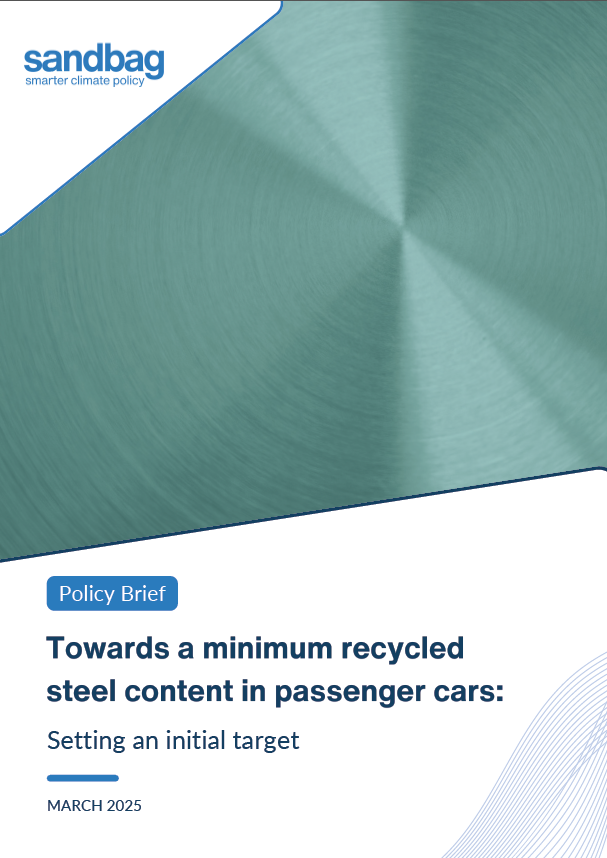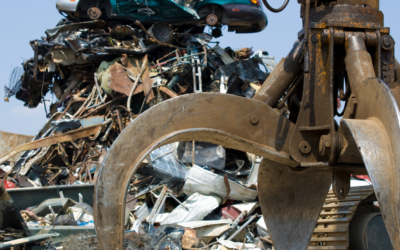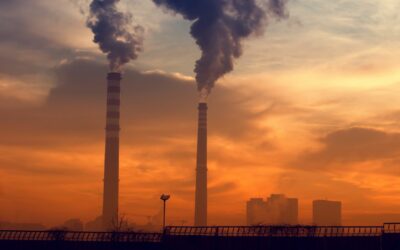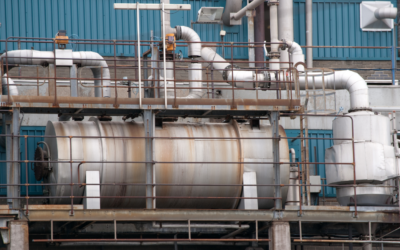The EU has around 286 million motor vehicles, and every year, 6.5 million of these are scrapped. If the steel scrap from these end-of-life vehicles (ELVs) is not managed well, valuable resources are lost, harming the environment.
With the EU preparing its ELV Regulation, which could set targets for minimum recycled steel content for passenger cars : what should those targets be?

About the policy brief
Despite a 90% overall steel recycling rate from ELVs, only 6% is reused for new car production. This analysis considers the environmental and safety challenges inherent in modern automotive steel design to propose a minimum recycled steel content target for passenger cars. It proposes clear and differentiated targets that could improve recycling practices in car production.
Key findings
Recycling targets should be specific for product categories rather than a single target for the whole car.
Internal Combustion Engine (ICE) vehicles and Electric Vehicles (EVs) use different amounts of long steel, which is easier to produce with high amounts of post-consumer scrap. Hence, a single target may have unintended consequences, such as increased fuel consumption.
Lightweighting strategies are important to consider.
High-Strength Steels (HSS) and Advanced High-Strength Steels (AHSS) enable vehicle structures that minimise the use of materials while maximising their strength and utility but have stringent quality requirements.
Limiting copper contamination is key to ease recycling.
The brief proposes solutions, including removing motors and electronics (e.g. sensors and wiring) during the dismantling phase before shredding.
Proposed targets can increase recycling.
The brief proposes differentiated targets: 5-10% post-consumer scrap for flat AHSS, 10-15% for flat carbon steel, and 70% for long AHSS.
To maximise circularity in car manufacturing, the quality requirements of each steel category should be considered, which requires separate targets for recycled steel material in passenger cars.
Read the full policy brief to learn more.
Photo by jplenio from pixabay
Related publications
Dec 1st 2025
May 26th 2025
More on the Steel
Joint statement urges EU to boost the use of recycled steel scrap in the automotive sector
A new joint statement urges the EU to set binding targets for recycled steel use in cars, citing the climate benefits of secondary steel and the need to reduce demand for high-emission imports.
CBAM extension: Closing the emissions gap
Free allocation has long been used to address carbon leakage under the EU ETS, but it has key limitations. It only covers emissions up to benchmark levels, fails to reward cleaner EU producers, and forfeits auction revenues that could support decarbonisation. It also creates perverse incentives by making high-emission goods artificially cheap.
Auction for industrial heat electrification: A positive step, but mind the induced emissions!
Industrial heat electrification is a key strategy for decarbonising energy-intensive industries by replacing fossil-based heat. We welcome the European Commission’s initiative to launch an auction to electrify industrial heat, while emphasising the need for careful design to prevent unintended increases in emissions due to electricity grid dynamics.

Mundo Matogné. Rue d’Edimbourg 26, Ixelles 1050 Belgium. Sandbag is a not-for-profit (ASBL) organisation registered in Belgium under the number 0707.935.890. EU transparancy register no. 277895137794-73. VAT: BE277895137794-73



